Story by Charilyne Rojas. Photos provided by Community Does It.
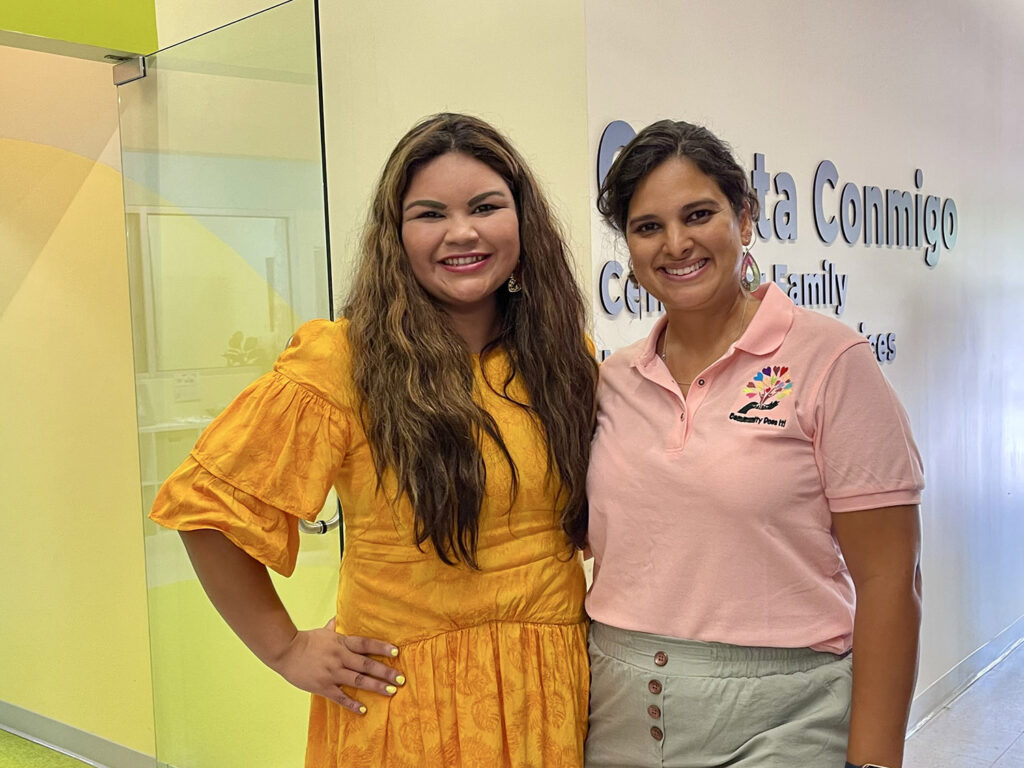
The organization tackles community issues as a collective impact project by bringing services into the community using a three-prong approach of low-cost counseling, group workshops, and resource offerings, all emphasizing providing and normalizing mental healthcare.
Children and adults alike are invited to a place of calm and play within the individual counseling rooms, adorned with photos, client artwork, and inspirational quotes like “Tu único limite es tu mente” (your only limit is your mind.) Any visitor can say all of these words ring true inside these walls. Community members are genuinely at the heart of Community Does It, from the interiors to the program offerings.
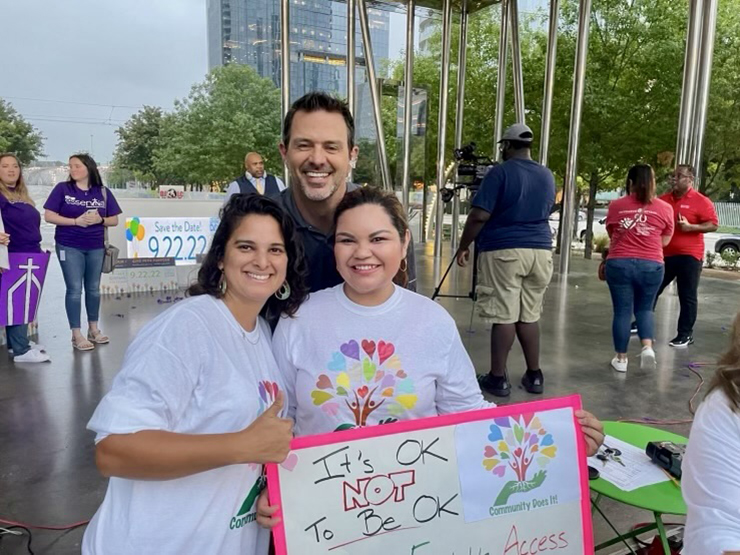
Born from the long-time desire to have a mental health center for their children and teens, the grassroots initiative became a reality with its ribbon cutting only one year ago. Through focus groups, surveys, and local interviews, parents agreed that the center should provide services beyond counseling. They also wanted educational support, emotional support, and a network of resources for them as parents to feel equipped to help their children.
The 75217 area covers the community of Pleasant Grove, which has a predominantly Hispanic population. Community Does It is also closely tied with another pillar of Pleasant Grove: Cristo Rey Dallas College Prep School. The founding team includes Christine Román, former Founding Principal and Executive Director of Cristo Rey; Raul Estrada, owner of Marcer Construction and the popular Dallas restaurants Las Ranitas and Los Sapitos; and Prisma Garcia, previous Director of Capacity Building at Social Venture Partners Dallas and former Program Director at The Concilio.
“This community needs so many resources and is filled with so many gifts and talented people. I started drawing this vision of gathering people, running focus groups, and using my research background to start a public health initiative,” Christine says.
Her experience at Cristo Rey and her Master in Public Health degree– combined with Prisma’s nonprofit network, philanthropic experience, and connections growing up in Pleasant Grove– came together in 2020 at the start of the pandemic to start forming the vision.
Prisma explains that parents were coming to Christine because she was their principal. “They said, ‘We have our faith, our families, our community, but we need more.’ When we got with the community, we didn’t have to tell them they needed this. They actually mentioned to us that mental health was the number one priority. We have zero mental health clinics or services,” Prisma says.
Prisma elaborates that Pleasant Gove has high rates of depression and suicide, and many incarcerated parents. “We have a lower life expectancy in this zip code as well. There are so many barriers like transportation, language, and cultural competency. We know the issues, but we wanted to start addressing them.”
Raul helped secure funding and the space while Christine and Johanne Acosta, now Director of the Educational and Family Support Program, ran focus groups to involve community members in every decision. Selecting the right location was crucial for the organization, both in making the center accessible and in normalizing mental healthcare. The Buckner Bazaar was the perfect place in the heart of the community.
“This place is a staple in the community,” Prisma says. “People come here to buy items for parties or religious activities, so being in the place where people come helps reduce the stigma.”
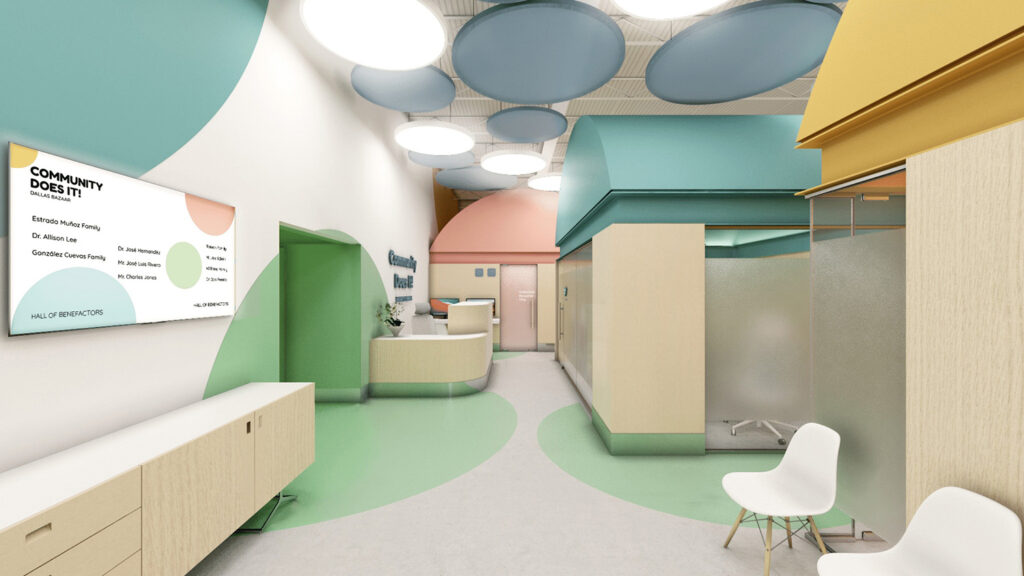
The building has a colorful awning above the entrance, friendly faces at the front desk, and vibrant wall colors and decor, thanks to a $50,000 Amazon donation to Dwelling in Dignity, another Dallas nonprofit dedicated to beautifying spaces through design for families in need. The ample, comfy gathering space allows guest speakers and workshop leaders to interact with community members.
Before having a licensed therapist onsite, the organization started by offering workshops to parents and families mainly by word of mouth in local libraries and recreation centers. Finding a location was challenging, but reducing mental health stigma in the community was another challenge.
Christine believes that mental health is real and that we need to care for it just like our physical health. She says that stigma looks very different in different communities.
“For the Latino community, speaking as a Latina myself and from what I heard in the focus groups, is the idea that generation after generation, when anyone suggests therapy, there is a fear and shame. ‘People will think I’m crazy, dangerous, and have no control of my life.’ This is where parents said, ‘Help us help our children. Help us change the stigma. Give us access to mental healthcare that is accessible, affordable, in my language, where I am respected and included in the journey,’” Christine explains.
Prisma says workshops are a good entry point for people who have never been to therapy. They provide an activity for adolescents, and also help in terms of capacity issues by being able to serve groups.
“Often what organizations will do– sometimes also due to lack of resources– is hold a workshop at a library, and then they don’t come back,” Prisma shares. “This community has been in that position a lot, so it has become hard to develop trust. Breaking the mental health stigma and giving community members a space they can call their own was a very high priority. We wanted them to know we are coming and aren’t leaving.”
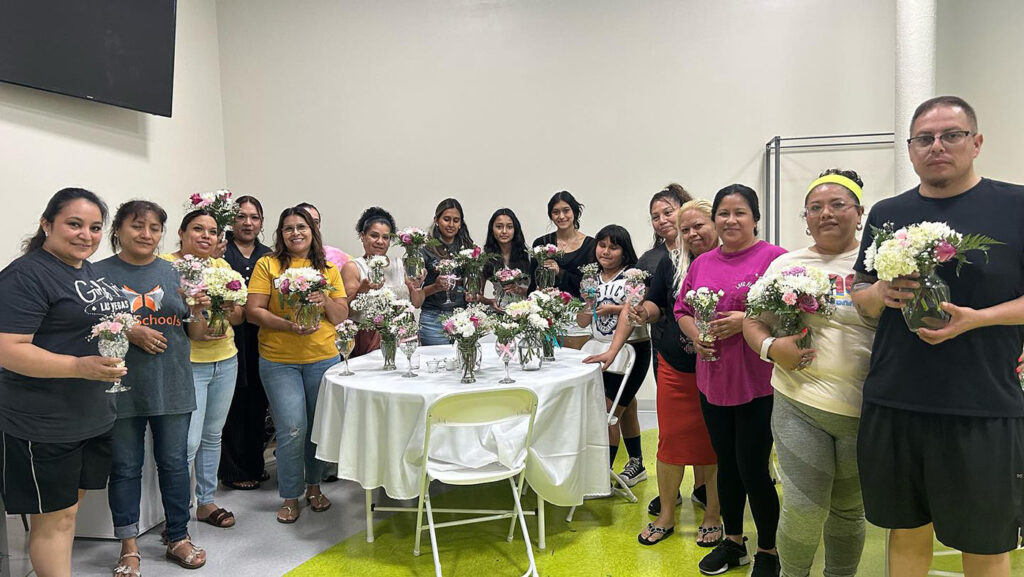
Community Resource Officer Magdalena Aguirre says that organizations should take the time to get to know the community before expecting something from the community.
“We’ve had instances where organizations canceled an event because they didn’t have enough people signed up online. But they don’t know the community doesn’t go online. People show up,” Magdalena says.
Christine believes there is a disconnect between organizations and communities when they believe that simply knowing a resource is available does enough to support them.
“What I learned in asking questions to the community is that some people knew about the resources. They just didn’t know how to get there or how to navigate them,” Christine explains.
She says there are many factors, such as language barriers, that you will only discover if you focus on understanding what the community wants and needs. “And it’s as simple as asking. Taking this information and sharing it with other organizations so we can do this together. Not only are we becoming the voice of the community, but we are also becoming the voice of the organization and bringing everyone together at the same table.”
Prisma agrees that families might know about resources, but not how to access them. “You can tell me there’s a food pantry here, or you can get eyeglasses here, but there is little help navigating those resources for parents here.” By eliminating those barriers, the community can begin to help itself. “[Magdalena] is vetting opportunities, developing partnerships, and planning health fairs, which also bring the community together.”
Like their central role in a family, mothers have also played a significant role in developing Community Does It. They even named the building: “Cuenta Conmigo” (count on me).
“Some moms come with ideas like ‘I know how to do floral arrangements.’ We’ve given them the space to do a workshop. We don’t want to be an organization that is telling people how to live or what to do– we want them to be empowered to live out their full potential,” Prisma says.
Community members value the presence of Community Does It and even recommend it to one another.
“Whenever someone asks me if I know a psychologist, I don’t hesitate to recommend the center,” Community member Cruz says. “With their course offerings, they also help families and women empower themselves and lose their fears. That helps us as parents and mothers find the motivation to keep going forward.”
The organization also uses students and recent graduates in their internship program. Prisma explains that there are students in their community, and they want to create opportunities for people who are already invested in the community so that they can distribute leadership.
Intern and recent University of Notre Dame graduate Jasmine Chavez describes a successful workshop led by famed local artist Nicolas Gonzalez.
“Usually, it’s just moms that come, but we wanted to get more involved with the youth in our community. We typically have 10-20 attendees for each workshop, but we had over 40 people that day,” Jasmine says. “We had to add tables, and people sat against the wall. We ran out of canvases and paintbrushes, and one woman painted with her finger, healing her inner child. It was nice to see everybody having fun.”
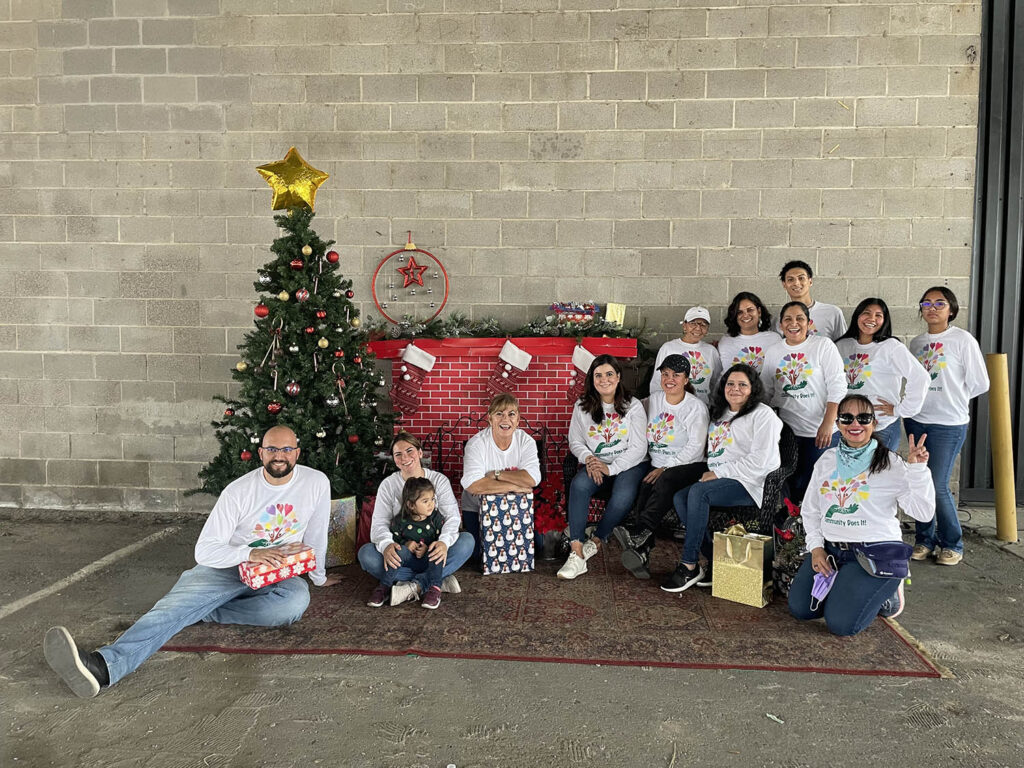
“Our hope is Community Does It becomes an umbrella,” Prisma says. “We envision that we can have a workforce arm with a social enterprise tied to it. That’s the big picture. The number one thing is that we want to keep a model of community being at the center.”
Volunteers are welcome to participate in a focus group and train to lead a workshop or support group. Christine invites others to join the mission through a financial donation or their time.
“Through your contribution, we will be able to continue to do workshops and all the other services at no cost to the families and therapy sessions as low as $20 per session. Be an ambassador, tell others about Community Does It, come and visit, and see it for yourself.”
Another community member, Laura, can confirm that Community Does It has been an enormous help.
“It’s been hard for us in the times of COVID and isolation,” Laura says. “Learning how to treat our children, learning how to deal with people, and how to respect each other. It is a really good project for all of us. We hope that it keeps growing and getting support so that it keeps supporting us.”
For more information and to support their mission, visit https://communitydoesit.org.
Sign up with your email address to receive good stories, events, and volunteer opportunities in your inbox.